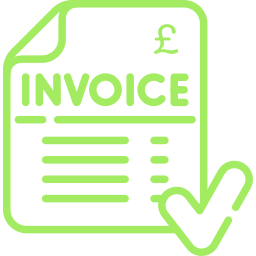Is taking out a secured loan against your home something you have considered? What is the value of your home in terms of business finance?
As a homeowner, it’s possible that you have a significant amount of value locked up in your home, and if you prefer to use your own equity and ability to raise cash rather than borrow from the banks, then utilising this home equity might be an option to consider.
Many banks are still reluctant to lend money to businesses and one of the ways in which business owners can still dictate the terms of their own success is using their own equity.
There are some big advantages for your business if you decide to borrow against your home:
1. You can borrow a lot more if you choose a secured loan vs an unsecured loan. It isn’t unusual for lenders to offer up to £100,000, or more when it is secured against your property.
2. The term required to pay it back can be much longer than the normal 3-5 years. Lenders will often offer terms stretching as long as 10, 15 or even 20 years.
Step by Step Guide to using your home for business finance
Step 1: How much do you need?
How much does your business need in terms of cash for your growth plans, consolidation or to ensure that cash flow is healthy in order to maximise current opportunities and maintain production rates?
Compiling an audit on your business to ascertain exactly how much you need is the first step to ensuring that you are only borrowing the amount you need from the equity within your home.
Step 2: How much equity is in your home?
If you are looking to raise additional business finance from your own property assets, then you need to know exactly how much equity you have in it. Getting a market valuation from an independent property valuation provider is a key initial step to take in understanding the amount of home equity you might have. But beware, lenders will never offer the full market price for your property. Most lenders are more conservative in their financial decision-making and prefer to leave a certain amount of equity within the property. They know that if they do find themselves having to force a re-sale of it, they will not achieve full-market price.
Step 3: Have a meeting with your current lender
Using the financial information from both your business audit and your property valuation you can engage in a conversation with your current mortgage provider regarding the possibilities of extending your mortgage facility.
Using Your Home To Raise Finance: Secured Loan v Further Advance
There are two ways you can release the equity in your home: Using a secured loan against your property and taking a further advance out on your existing mortgage.
Secured Loans
Secured loans can be cheaper and they offer access to bigger loan amounts than either personal loans or unsecured loans. However, secured loans attached to property might also come with early repayment penalties (redemptions) if you pay off the debt early.
Interest rates on secured loans are also usually lower than those on unsecured and personal borrowing. However that rate will be dependent on the size of the loan, the equity in your home and the loan period. The big benefit of large amounts over a longer term means lower monthly repayments, although this is reflected in the higher amounts of interest over the entire borrowing period.
When looking at secured loans, the biggest influencer is going to be interest rates. Finding the lowest interest rate will mean getting the cheapest borrowing.
Further Advance
This means increasing the amount you owe on your mortgage. If your house is worth £350,000 and you only owe £250,000 on it, then you can negotiate with your mortgage provider to borrow up to that amount against your property; increase your mortgage and use the money for your business.
Not all lenders allow you to use your equity to fund a business, so you might be able to use the opportunity to change mortgage providers and take advantage of lower interest rates elsewhere at the same time.
The Risks of Borrowing Against Your Home
Obviously, the biggest downside is having to put up your property as the main guarantor of repaying the loan, which can put your home at risk if you don’t pay. Any failure to maintain payments on the agreed repayment plan can result in the lender repossessing your property or forcing the sale of your home.
Effective borrowing against the equity in your home requires:
- Stable interest rates
- Rising property values.
But there are key questions you should be asking yourself before you take the plunge of re-mortgaging your family home:
- A fixed interest rate is good, but a variable one can become very expensive if interest rates start to rise.
- Is your property gaining in value – will there be more equity available offering further protection on your home?
- Are you prepared for any further emergencies in funding and where you can go to access further finance?
- Are there tax implications for using a second mortgage for your business?
The Benefits of Borrowing Against Your Home
The two main benefits of a secured loan have already been mentioned above; cheaper rates and access to increased amounts of borrowing.
As well as ensuring that you have enough equity in your home to borrow against it there are other key points to consider:
Affordable repayment
Can you afford to make your repayments? Will your increased mortgage amount be covered in the additional income your business can generate? Is that additional income sustainable?
Review expenses
Making a detailed list of your business income and expenses can highlight the affordability of taking out additional finance on your home.
Fees
As well as the cost of your secured loan, there are also a number of set-up fees and costs that need to be taken into consideration including administration fees and legal fees.
Income protection
Borrowing against your home carries that inherent risk of one day finding yourself in a position where your business isn’t going so well and you lose your home. You may find yourself with plenty of options if or when that happens. But right now it might be best to ensure your income is protected so that the cost of your bills and your mortgage are covered if your income were to drop significantly due to a downturn in your business fortunes.
Bad Credit Business Loans
Many financial advisors warn of the risks of using home equity, citing the need to save the option of borrowing against your home for a ‘rainy day’. But what if today is that day?
Sometimes bad credit business loans aren’t easy to access. You might have already exhausted these options. Secured loans are always viewed as being less risky by lenders, due to the considerable value that using your home as an asset represents.
Even if your credit rating isn’t great, if you own your own home and have been making regular mortgage payments on it, then you might find borrowing further against it can be a much easier process than trying to access other forms of finance. This is especially true if you have been knocked back for business loans from traditional lenders.
This is true even if your bad credit has meant CCJs. It is still possible to secure finance from lenders because of the value of your home asset.
Alternatives to using home equity include unsecured business loans which aren’t secured against property or assets.
There are also products specifically for those with bad credit – bad credit loans. These are useful for any company with imperfect credit records, usually offered by alternative lenders. Obviously having a good current balance sheet is required, but it does open up funding opportunities for those businesses that don’t realise they are there.
Using home equity to fund business finance can be a powerful tool in increasing and growing your company. But make sure it is both affordable and the right option to take. While making the right decision can ultimately lead to paying off your mortgage quicker, getting it wrong, or financing with equity when interest rates are rising can have an equally negative effect.
If you are looking to finance your business and are considering home equity or bad credit business loans, then talk to Funding Guru first. We have a wealth of experience in this sector and can often find finance for businesses that cannot get it elsewhere.






















